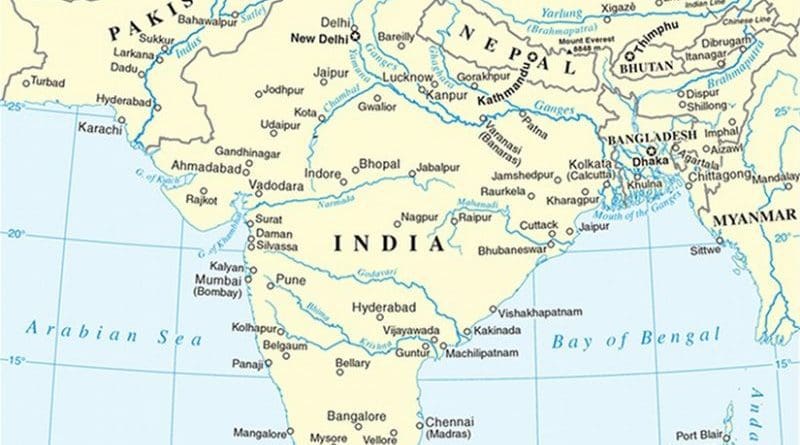Remembering Tagore In Turbulent Times – OpEd
By IPCS
By Asanga Abeyagoonasekera*
“I have become my own version of an optimist. If I can’t make it through one door, I’ll go through another door – or I’ll make a door. Something terrific will come no matter how dark the present.” — Rabindranath Tagore
One hundred and fifty five years ago, the greatest and most illustrious son of Asia, Gurudev Rabindranath Tagore, was born. Tagore’s work inspired many individuals around the world including many Sri Lankan scholars and musicians. Tagore believed in creating an enviroment of multiculturalism and tolerance. He spoke of the importance of world peace, dialogue and non-violence. This vision remains unfulfilled. The value of Tagore’s vision – the restoration of human values – is more relevant today than ever.
Had the essence of Tagore’s philosophy been practiced, Bangladesh, one of the countries he wrote the national anthem for, would not be going through its present crisis. There have been more than fifty terrorist attacks in the last few years and out of this, the Islamic State (IS) was responsible for 13 of these, including the recent killing of a Sufi Muslim spiritual leader.
The IS has clearly stated that the “soldiers” of its declared caliphate have also been murdering targets in Bangladesh, and that it would expand further in South Asia and would “continue to terrorise the crusaders [westerners] and their allies until the rule of Allah is established on the earth.”
The South Asian region has been devastated by terrorist attacks in Afghanistan, Pakistan and now, Bangladesh. Providing security to civilians has become the top priority for many countries around the world. From Sri Lanka, more than fifty individuals have joined the IS, according to experts. The government must invest in focused strategic and security initiatives to keep track of such activities and work closely with Muslim organisations, particularly Muslim youth, to prevent them from joining the IS.
The region indicates all clear variables for a geopolitical nightmare as states surrounding India show much instability. All South Asian countries face similar and in some cases common economic challenges. Weak institutions, weak political culture, unemployment and inequality are potent triggers for youth unrest. From Naxalism in India to other domiciled terrorist entities, it can be predicted that they will take the advantage provided by weak states.
Weak states surrounding India are a direct threat to Indian security. It is important to strengthen small and larger states in South Asia through economic and social revival and through regional cooperation and global integration to address problems, particularly those of poverty and deprivation.
President Sirisena of Sri Lanka delivered the Lalith Athulathmudali memorial lecture recently. The legacy of the Oxford and Harvard scholar-turned-politician who was brutally gunned down in 1993 remains. The President addressed the importance of intellectuals such as Lalith in today’s politics. Lalith was ethical and the yeomen service he rendered to Sri Lanka was immense.
He initiated “Mahapola,” a scholarship scheme to ignite many young minds from rural villages by giving them access to university education. Speaking at the event, Lalith’s only brother said, “Lalith was offered an important place by Prime Minister Lee Kuan Yew to serve Singapore but he declined to serve his own country.” Had he accepted this offer, his life would have not ended with assassin’s bullets – a clear explanation of Sri Lankan political culture.
President Sirisena was elected to change this culture. Dighting corruption and introducing transparent methods of governance remain top priority. This week in London, world leaders including Sri Lankan President and many economists will meet at the Anti-Corruption Summit to discuss measures to tackle corruption. This coincides with the revelations made by the Panama Papers, in which many global leaders including British Prime Minister David Cameron, the host of the landmark summit, feature. While large-scale initiatives are important, citizen-centric stakeholder movements have created better results, such as ipaidabribe.com in India, to quantify corruption data and educate the public.
All South Asian countries except Bhutan rank below the score 50 on the corruption scale – qualifying as ‘highly corrupt’ – according to Corruption Perception Index by Transparency International. Corruption increases the cost of doing business up to 10 per cent globally, says the World Bank. With corruption and the absence of transparency, market growth and sustainability cannot be attained.
Addressing another social issue, Prime Minister Wickremesinghe initiated a high level dialogue on Ragging and SGBV (sexual and gender-based violence) in Sri Lankan Universities. This is a very important step – a few days ago, another incident of ragging was reported at Kelaniya University. This is a violation of individual dignity and it is important to teach dignity at the school level and at universities. The Education Minister could introduce a programme such as Global Dignity, running in 65 countries, that teach values of dignity to school children.
With all these social implications, the much forgotten words of Tagore could help reinvigorate efforts to change society as it is now. No matter how dark the present, optimism is crucial.
* Asanga Abeyagoonasekera
Executive Director, Lakshman Kadirgamar Institute of International Relations and Strategic Studies (LKIIRSS), Sri Lanka

